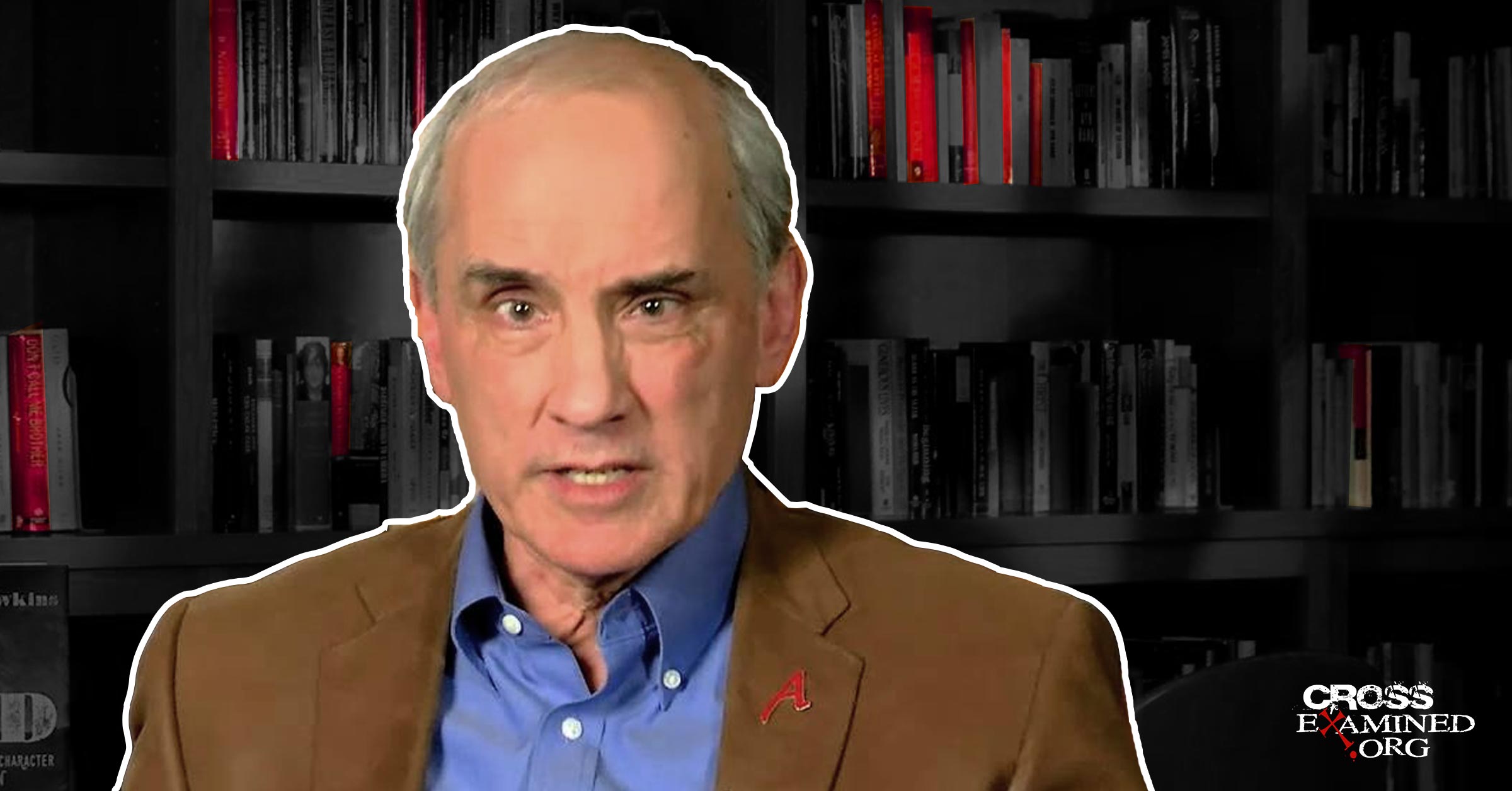If you’ve ever spent time talking with skeptics about the Bible, they’ve more than likely brought up Old Testament laws that appear out of step with our “modern ideals.” For example, many suggest that the Bible treats women like chattel (property) and promotes misogyny. Then they’ll quote verses that appear, on the surface, to make women out to be second-class citizens.
But does the Bible really promote the idea that women are no better than chattel? Does Scripture declare women as the inferior gender? The truth is, it doesn’t, and I can explain why.
God’s Ideals Vs. Case Laws
Typically, those who reject Christianity rush to various case laws to make their point that Scripture is fundamentally against women. Looking to case laws, instead of God’s ideals, is a huge mistake, though. To be fair, the skeptic usually doesn’t know the difference, and you might not either. So allow me to distinguish between the two.
God’s Ideals
God’s ideals refer to his straight forward commands or principles he prescribes in Scripture. That is, these ideals reflect God’s heart on the matter and are universal in scope. Let me give you a few examples with respect to women:
God created man in his own image, in the image of God he created him; male and female he created them. — Genesis 1:27
For this reason a man shall leave his father and his mother, and be joined to his wife; and they shall become one flesh. — Genesis 2:24
Every one of you shall reverence his mother and his father. — Leviticus 19:3
He who finds a good wife finds a good thing and obtains favor from the LORD. — Proverbs 18:22
What do we learn about God’s attitude toward women? They are made in his image, should not share their husbands with any other women, deserve respect from their children, and are a sign of God’s favor to their husbands. In other words, God loves women and values them just as much as he values men.
Case Laws
Case laws are different from God’s ideals in that they only refer to specific situations and are not universal in scope. And in many instances, these case laws never assume that God’s ideals have been met. Instead, they assume that moral concessions have been made and then try to make the best out of that less than ideal situation. Let me give you an example of a case law:
If a man has two wives, the one loved and the other unloved, and both the loved and the unloved have born him sons, if the firstborn son belongs to the unloved, then it shall be in the day he wills what he has to his sons, he cannot make the son of the loved the firstborn before the son of the unloved, who is the firstborn. But he shall acknowledge the firstborn, the son of the unloved, by giving him a double portion of all that he has, for he is the beginning of his strength; to him belongs the right of the firstborn. — Deuteronomy 21:15-17
Notice that this case law refers to a polygamous situation (If the man has two wives). In other words, this man has disregarded God’s ideal for monogamous marriage (Gen. 2:24). Now that the deed is done, how should Israel make the best of this messy situation?
You might say he should divorce one of his wives to get back to monogamous marriage. But which one? And once she’s divorced, will anyone want to marry her since she’s no longer a virgin? Furthermore, how will she provide for herself? As you can see, it’s not so simple.
Instead, for the sake of the women’s protection, God says for everyone to stay put. And in this particular case law, God says that the firstborn child, regardless of whether he comes from the favorite wife or not, should receive the firstborn’s inheritance.
This is not ideal. Polygamy is always wrong (more on that in a minute). But now that the man already violated God’s ideals, the law attempts to make the best out of an already messy situation.
Prescription Vs. Description
Another reason people assume the Bible is misogynistic is because they don’t distinguish between descriptive and prescriptive texts. As with case laws, people will misunderstand God’s heart on the matter if they don’t understand what kind of text they’re reading.
Prescriptive
Prescriptive texts are ones where God gives a clear command — or prescribes — how people are to live in relation to him. With respect to polygamy, here are some examples of prescriptive texts:
For this reason a man shall leave his father and his mother, and be joined to his wife; and they shall become one flesh. — Genesis 2:24
[The king] must not take many wives, or his heart will be led astray. — Deuteronomy 17:17
And you shall not take a woman as a rival wife to her sister, uncovering her nakedness while her sister is still alive. — Leviticus 18:18
Again, God’s ideal that he clearly prescribes is that a man marry only one wife. This is not only true for the kings of Israel (Deut. 17:17); it is true for all men everywhere (Gen. 2:24).
Descriptive
Because the Bible contains so much historical content, many texts describe certain immoral actions. With respect to polygamy, we find several instances in the Old Testament, where men have multiple wives. This would seem to support the notion that Scripture promotes treating women like chattel, but that would be a mistake.
This would be a mistake because the Bible never prescribes polygamous relationships. It describes them. It describes Lamech (the first polygamist), who had no intention of obeying the Lord’s commands. Scripture describes Jacob, David, Solomon, and others, who disregarded God’s prescribed law (Gen. 2:24, Deut. 17:17, Lev. 18:18). All the while, in each case where men ignore God’s prescribed ideal, we witness disharmony, strife, and pain.
In short, just because we read about men treating women like chattel doesn’t mean that’s how God feels about them. God made women in his image and loves them as he loves men.
What About The Bride-Price?
When skeptics talk about the Old Testament bride-price, they make it sound equivalent to buying a mule (chattel) at a public auction. In reality, it reflected no such thing.
The bride-price was a payment that the groom’s father made to the wife’s father and signified that the groom had serious intentions to marry his bride. That is, he wasn’t entering this relationship lightly.
This payment not only strengthened the relations between the two families, but it also provided compensation for the work the woman would have otherwise contributed to her family. Additionally, the payment served as a safety net for the family if the husband ever died or lost his ability to provide financially.
Here is an example of a case law that speaks of the bride-price:
If a man seduces a virgin who is not engaged, and lies with her, he must pay a dowry for her to be his wife. If her father absolutely refuses to give her to him, he shall pay money equal to the dowry for virgins. — Exodus 22:16-17
Again, here is an example of a less than ideal situation (case law). But notice that this law blames the man, not the woman. The man seduced a virgin, and because of that, the law says he needs to pay up with the bride-price.
Skeptics argue that this act makes women out as chattel, but the intent of this law is actually for their protection. You see, women who weren’t virgins had a much harder time getting married in that culture, and therefore, their economic future would have been in jeopardy. Requiring the man to pay the bride-price and marry the woman actually protected her in the long run.
The father, however, had the right to refuse his daughter while at the same time collecting the bride-price since the man was guilty in the matter. Ultimately if the father and the daughter agreed to it (Gen. 24), she could marry the man and have financial security for the rest of her life.
Women As Chattel?
An elementary reading of the text might lead some to conclude that the Bible is misogynistic. When one understands a few basic hermeneutical principles, however, one discovers the Bible is actually for, not against women.
Recommended resources related to the topic:
LifeGivers Apologetics: Women Designed and Equipped to Share Reasons for the Hope Within (Book/ Study Guide – Teacher’s Version and Student’s Version) by Tricia Scribner
Major Truths from the Minor Prophets (Book) by Edna Ellison, Kimberly Sowell & Tricia Scribner
Woman to Woman: Preparing Yourself to Mentor (Book) by Edna Ellison & Tricia Scribner
Ryan Leasure holds a Master of Arts from Furman University and a Masters of Divinity from the Southern Baptist Theological Seminary. Currently, he’s a Doctor of Ministry candidate at the Southern Baptist Theological Seminary. He also serves as a pastor at Grace Bible Church in Moore, SC.
Original Blog Source: https://bit.ly/36XgtNo












